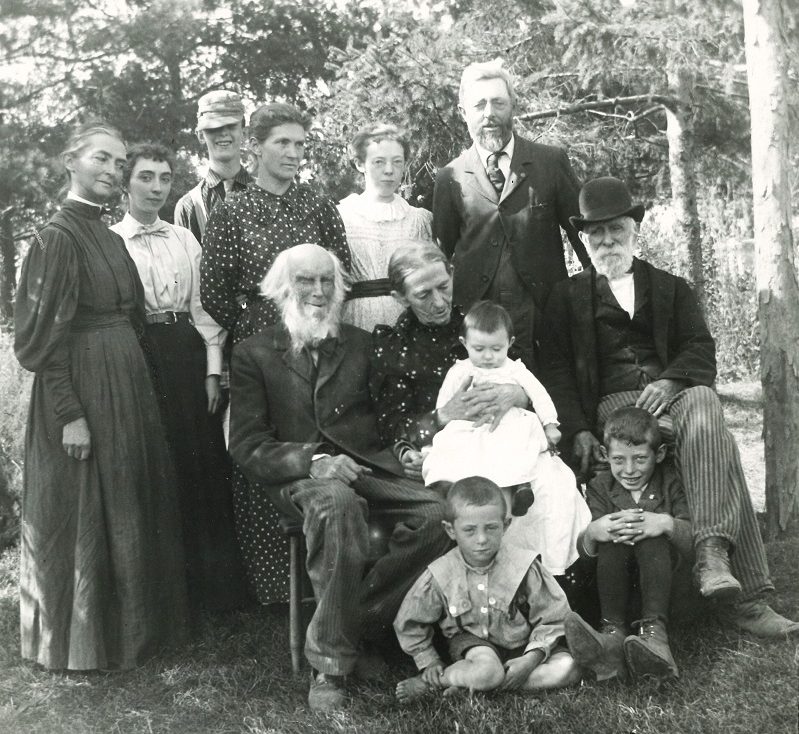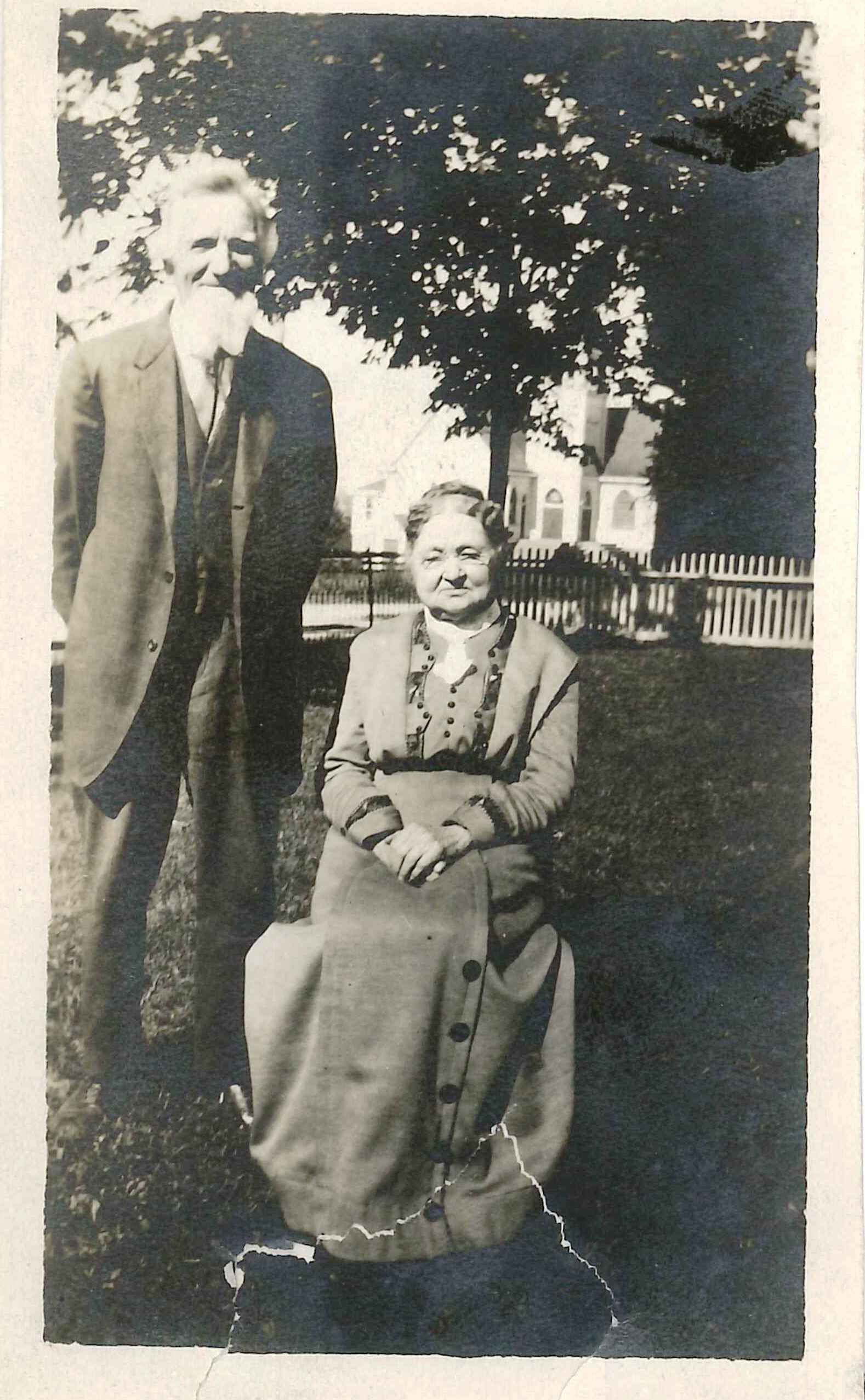Hadley: A once thriving community, all but gone

By Sandy Vasko
Will County is full of them. Little crossroad communities that appeared from nowhere, and then slowly melted away, leaving just a trace of what used to be.
Hadley is one of these. Located in Homer Township, it was the home to the County’s earliest pioneers. Let’s look at the rise and fall of a once thriving community:
First, we need to look at the precursor to Hadley, Yankee Settlement. The chronicler of Will County history, George Woodruff tells about it: “We have spoken of several families as settling in Yankee Settlement. These were ‘Hoosiers,’ but, as will be inferred from the name, most of those who
settled in that portion of the county embraced in the town of Homer, the northern part of New Lenox and the eastern part of Lockport, and called ‘Yankee Settlement,’ were Yankees.
“The word meant in that day, those who came from any State east of Ohio, in distinction from those who were called Hoosiers, a term which, though properly applicable only to Indianians, was popularly made to cover all others. When more exactly speaking, those from Ohio were Buckeyes; those from Kentucky, Corncrackers; those from Michigan, Wolverines, etc., etc.
“This was a famous settlement in the early days, containing many fine families of well-to-do farmers, where we could find more pretty girls forty odd years ago, than in almost any other locality. How this may be now, the writer cannot say; circumstances have prevented him from keeping posted in this regard. Offshoots of Yankee Settlement were known as Gooding’s Grove and Hadley.
“After the Sac (Black Hawk) war another tidal wave of emigration set toward the West, and brought many to Yankee Settlement in the years 1833-4-5. Among these were Reuben Beach and sons, Thomas Smith, Chas. M. Grey, George Grey, Levi Hartwell, Jireh Rowley and four sons, Wm. H. Frazier, Alanson Granger, Addison Collins, Frederick Collins, Norman and Horace Messenger, John
Lane, Lucius M. Case, H. S. Mason, Dr. Moses Porter, Abram Snapp, William Williams and three sons, Benjamin Weaver, Dea. Levi Savage, S. C. Chamberlin and sons, William Bandle, Samuel Anderson, John Griswold, Cornstock Hanford, Nathan Hopkins, Aaron Hopkins, John Fitzsimmons, Benjamin
Dancer, Cyrus Cross, Andrew Frank, Sylvester Munson, Lyman Cross, David Parish, Leander Bump, Jacob Bump, Rev. Mr. Ambrose, John Ross, Hiram Olney, Rev. Mr. Kirbey, who became Pastor of
the Hadley Church, and Isaac Preston, now of Lockport, in 1836.
“The first post office in Will County was established in Homer Township in 1836. This was for the Yankee Settlement, bear in mind, the Yankees were wide-awake, intelligent people, and would not be deprived of their mail and other reading matter. The office was called Hadley, for Hadley, Mass., from which some of the settlers came who were active in getting it, and Reuben Beach was appointed Postmaster.
“A store was opened by Pratt & Howard, and Hadley became quite a business place, with some chance of becoming a town. At one time it boasted two stores, a post office, blacksmith-shop, church, etc., but railroads and the canal changed the order of things, and the glory of Hadley waned. The post office and church are all that now remain of the once busy place. Charles Haley is at present the Postmaster of Hadley.
“Before the office was established here, the settlers of Homer went to the ‘post office on
Hickory Creek, at “Uncle Billy” Gougar’s, for their mail matter, and right gladly forked over their quarters (which was then the postage on letters, payable at the office of delivery) for the long-wished-for letter from the old home in the Yankee States.
“When the post office was established at Hadley, the mail was carried on horse-back from Chicago, but a few years later, a mail route was formed between Michigan City and Joliet, and then it was brought to Hadley over this route in a kind of open hack or stage.
“The first church organized in Will County is said to have been the Presbyterian Church at Hadley by Rev. Jeremiah Porter, the pioneer of the American Home Mission Society in the Northwest. The first church was built at Hadley about 1838 or 1839, and was church and schoolhouse combined.
The people met in it, of all denominations, and were not selfish nor confined to one particular sect. But the church there has passed away and the society has drifted into the Congregational Church, near the center of the township.
“The Baptist Church at Hadley was originally organized by Elder A. B. Freeman, as already stated. He was the first Baptist preacher in Northern Illinois, and is said to have baptized the first person on the western shore of Lake Michigan, in April, 1834. The church was built there a year or two before the Congregational Church above mentioned.”
As we can see, Hadley was one of the earliest settlements in the County. Even as late as 1879, we read, “Business is brisk and sleighing is boss. The old Hadley post office, which stood on the corner of Cherry and Forest Avenues, has been moved, and it leaves a vacant spot in the post office block, but we hope that there will be a new building erected in its place.”
Hadley’s reputation for partying was well known. We read, “There will be a social party at A. Colins’ Tuesday evening. The young people anticipate a good time.
“There was a sociable at A. G. Rowleys’ Friday evening, Dec. 20th; it was well attended, there was 100 present and they all seemed to enjoy themselves. The next sociable will be at Mr. Peck’s, Friday evening, Jan. 3rd. All are invited.
“There was a Christmas tree Christmas Eve at the Baptist Church, but owing to the stormy night and bad roads, old Santa Claus did not bring a very large amount of presents, but the tree was pretty well filled, and after a brief exercise of singing and speaking, old Santa proceeded to distribute his gifts, which made some fun for the children. He is a fatherly old chap, as gray as a badger and as jolly as a clown.”
If things were so lively, what caused Hadley to disappear? Some say it was the lack of transportation. Farmers had a hard time getting their crops to market, stores had a hard time getting goods to sell, having to go into the larger towns like Joliet to buy goods to bring back.
I think it was something else. I think that farmers had no interest in building commercial establishments, they just wanted to farm. Large towns are built by entrepreneurs who invest money, and sell things for a profit. Hadley residents just wanted that simple country life.
Having said that, there exists two homes that had their birth in the heyday of Hadley. One is the former home of Charles Haley, and served as a post office for the town. They have been identified in the Rural Structure Survey done by the Will County Preservation Commission.
The Survey also cautions that these may be in danger as well. I hope not.

Addison and Catherine Collins